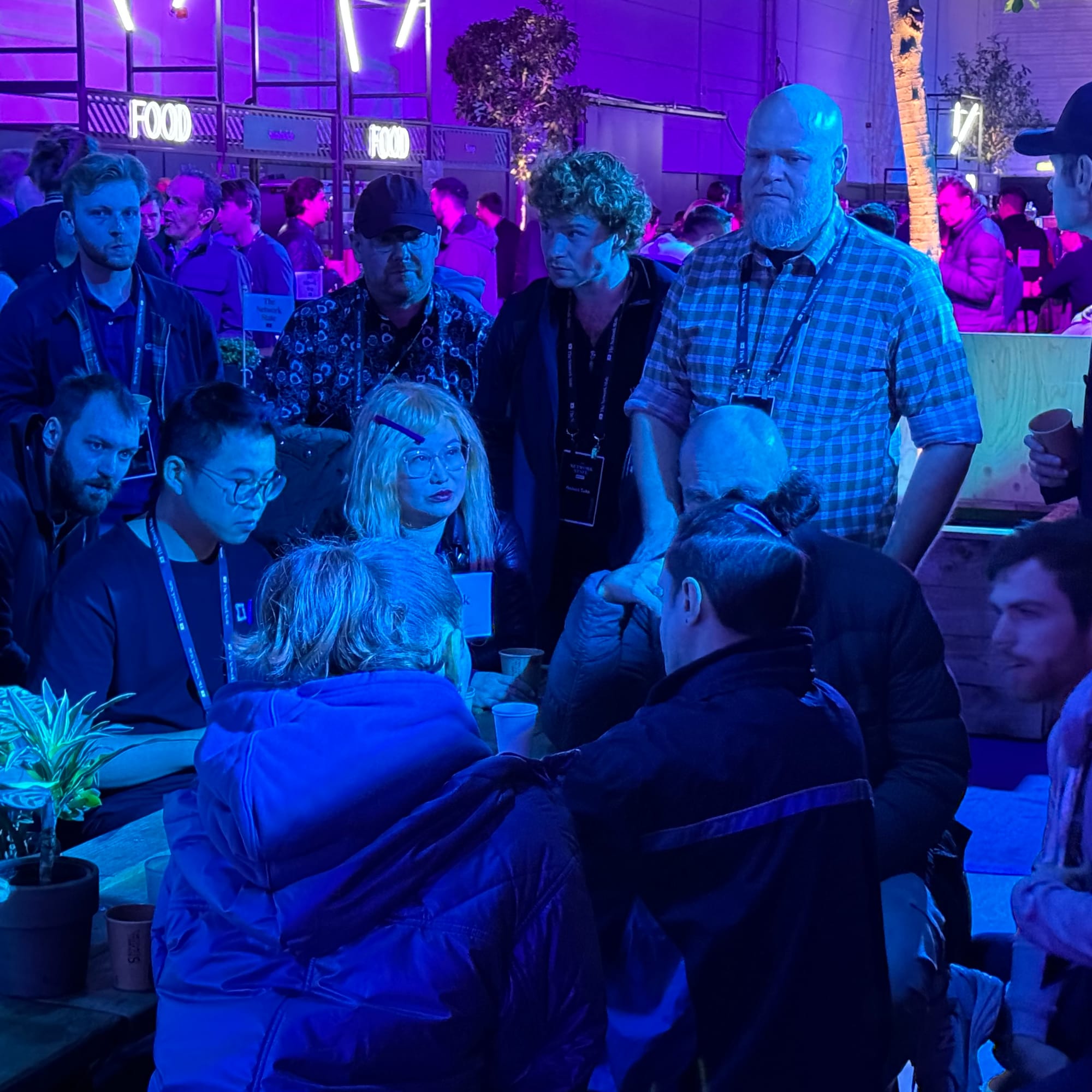Decoding the "Network State"
The 'Network State' movement may sound new, but it's just rehashing old ideas of 'libertarian exit' that ultimately aid our adversaries.

As technology entrepreneurs have become increasingly influential within the American right, many have looked for explanations about their motivations and goals. Anyone who spends even a little bit of time researching the topic will land on the nascent "network state" movement, which seeks to replace nation states with a free-market alternative.
The basic pitch, which seems to make sense on the surface, is this: If I'm not being well served by my government, shouldn't I be able to take my 'business' elsewhere, and get a better deal? But this is not an original idea. Here's a breakdown of what the network state idea is, where it came from, and how it fits into the bigger geopolitical picture.
Milton Friedman: Free to Choose
In 1980, economist and free market advocate Milton Friedman published a popular book called Free to Choose: A Personal Statement. It was very influential within the conservative movement, and particularly within the Reagan administration and the Council for National Policy, which was founded to advance the conservative cause. The gist of the book is that free markets increase choice and prosperity, and that those ideas should be applied when considering concerns such as welfare, education, housing, and regulation.
Friedman's book was accompanied by an influential 10 part television series which aired, ironically, on PBS. The series lent an air of respectability and reasonableness to Friedman's ideas, and provided a backstop for legislators looking to enact Reagan's policy agenda — even as most of the ideas presented were only slightly removed from the relatively extreme free market ideas that Friedman and his gang of "Chicago Boy" economists had tried to implement under the Pinochet regime in Chile.

Fast forward to the inaugural and overwhelmingly male Network State conference in Amsterdam in October 2023 where Friedman's grandson, Patri, is one of the primary ideological leaders of the movement. Friedman held court with a cadre of enthralled attendees as he dispensed aphorisms and pithy soundbites.

Friedman is also known for his prior work in the field of libertarian exit, on a project called seasteading — the idea here being if you could find ways to live in international waters, you could claim state sovereignty and, you guessed it, not pay taxes. Unsurprisingly, this effort was also backed by arch-libertarian turned political kingmaker, Peter Thiel.
Balaji Srinavasan and Curtis Yarvin
While Milton and Patri Friedman provided the much of the ideological roots for the Network State concept, entrepreneur and investor Balaji Srinavasan has helped crystallize it into a movement with actual followers. In 2017, under the first Trump administration, Peter Thiel proposed that Srinavasan lead the Food and Drug Administration; that bid was not successful, but Srinavasan has continued to maintain close ties to Thiel and incoming DOGE co-chair Vivek Ramaswamy.
Curtis Yarvin, a reactionary, neo-fascist, anti-democracy blogger who also writes under the name Mencius Moldbug, is also influential in the Network State movement. Yarvin is well known to those monitoring the rise of the global neo-fascist movement (I first wrote about him in 2017), but he has also become very influential in sovereignty circles. Yarvin created something Urbit, which he envisions as a kind of computer operating system to promote sovereignty, espousing such values as "digital independence," "decentralized control," and "conservation of sovereignty." Notably, Yarvin suggests that the purpose of Urbit is not to violate the law; however, one could interpret it as a platform (for nerds, to be sure) to eventually grow a network of individuals who might be able to become subject to different law.
If you're getting the feeling that this is all impossibly geeky — or that you've just, in error, walked into your high school's Ayn Rand book club — that's understandable. This is deeply nerdy stuff, with limited popular appeal. But it now has outsized influence — exactly because of its penetration within the world of powerful tech entrepreneurs.
The Battle for San Francisco
In a TED talk I gave in 2014, I took note of a conflict that was brewing in San Francisco between the tech industry and the rest of the city. Over the last decade, that conflict has intensified and crystallized into political activism backed by Srinavasan and other Network State advocates. Garry Tan, the current CEO of famed technology incubator Y Combinator, has called for a kind of "tech Zionism," in San Francisco, wherein citizens loyal to the movement would be called "grays," wear symbols to identify each other, and acknowledge each other on the street. Some have noted that Luigi Mangione, who murdered United Healthcare CEO Brian Thompson, identified with "gray tribe" influences.

Several writers have done an excellent job outlining the influence of the Network State movement on San Francisco politics, and in more detail than I can get into here. Gil Duran, who is based in the East Bay, has written extensively on the topic for both The New Republic and for his blog, The Nerd Reich.
Emily Mills has been tracking local San Francisco politics and the incursion by Srinavasan's allies closely, as has another tech industry analyst who goes by Shanley. And tech has made significant gains in San Francisco, with OpenAI CEO Sam Altman serving as an advisor to Mayor Elect Daniel Lurie.
Privatize Everything, Everywhere
The impulse behind the Network State concept is that if privatization is good for some things, it's necessarily good for everything. The goal for Srinavasan, Yarvin, Friedman, Thiel, Musk, and their allies is to remove as many barriers to privatization as possible; and their efforts have borne fruit all over the world — from ZEDEs (Zonas de Empleo y Desarrollo Económico) in Honduras, to freeports in England, the entire country of El Salvador under dictator Nayib Bukele, NEOM in Saudia Arabia, and even a new, tech-forward city near Travis Air Force Base called "California Forever," backed by venture capitalist Marc Andreessen. The Trump campaign also has been touting "Freedom Cities," based on the concept of charter cities. Milton Friedman's naïve idea that the way to fix government is to make it compete for business underlies all of these efforts.

Another group called Logos Network organized a Parallel Society Congress in Bangkok in November 2024 aimed at envisioning a "post-nation-state world," where a parallel society would replace government services with offerings from the private sector. Srinavasan hosted a second Network State conference in Singapore in September 2024, where his group is working on building out a Network School, which has a capacity for 150 students to connect and take classes in building their own intentional communities around network state concepts. This is again, nothing really new: libertarians have been pursuing "exit" and related educational concepts (see Robert LeFevre's Freedom School) for decades.
Libertarian Exit and Goldbuggery
While it might be tempting to see the Network State concept as some newfangled idea that threatens to upend the global order, the fact is that this is a warmed over recapitulation of much older ideas with a tech veneer. The bulk of the talks presented at the Network State events have been about co-living, meetups, and housing technologies, many of which are simply not new and were most recently explored as part of the Web 2.0 wave in the late aughts.
Crypto-based governance models, such as Distributed Autonomous Organizations (DAOs), aspire to a kind of "country club democracy," where anyone sufficiently "in the know" can opt in to be part of an experiment. These ideas cannot and do not meet the needs of actual democracy, or rule by the demos (people), and tend more towards fascism and related fantasies of "libertarian exit."

Perhaps the most telling talks at the 2023 Network State conference were delivered by Kathleen Tyson and Peter St. Onge, both of whom offered messages of doom and gloom for the US dollar and its future prospects. Tyson suggested that the world "go back to gold as the basis of international monetary discipline," while St. Onge said that the "current system is going to collapse" and that a gold-backed BRICS currency was "genuinely superior to the dollar."
A War Between Worldviews
These ideas are straight out of Protocols of the Elders of Zion, and more recently have been echoed in Project Russia, and by people like Ron Paul, Elon Musk, and Steve Bannon. Readers familiar with my reporting on Project Russia will recall that it aims to "split the world in two" and that the "side that is right, wins."
A main reason to oppose the network state concept isn't just because of its elitist roots and impractical, anti-social prescriptions, but rather because it advances an anti-democratic worldview that aids our adversaries. If we are dealing with an absolute, Manichean conflict with a clear winner and a clear loser, then the 'network state' (and, historically, all forms of libertarian exit) are on the wrong side.
Thiel, Musk, Vance, Srinavasan, and Ramaswamy have purchased outsized influence in the Trump 2.0 administration. We would do well to keep sharp watch on network state and charter city ideas, and give them no quarter. Let's make fringe ideas fringe again.
Additional Suggested Reading









